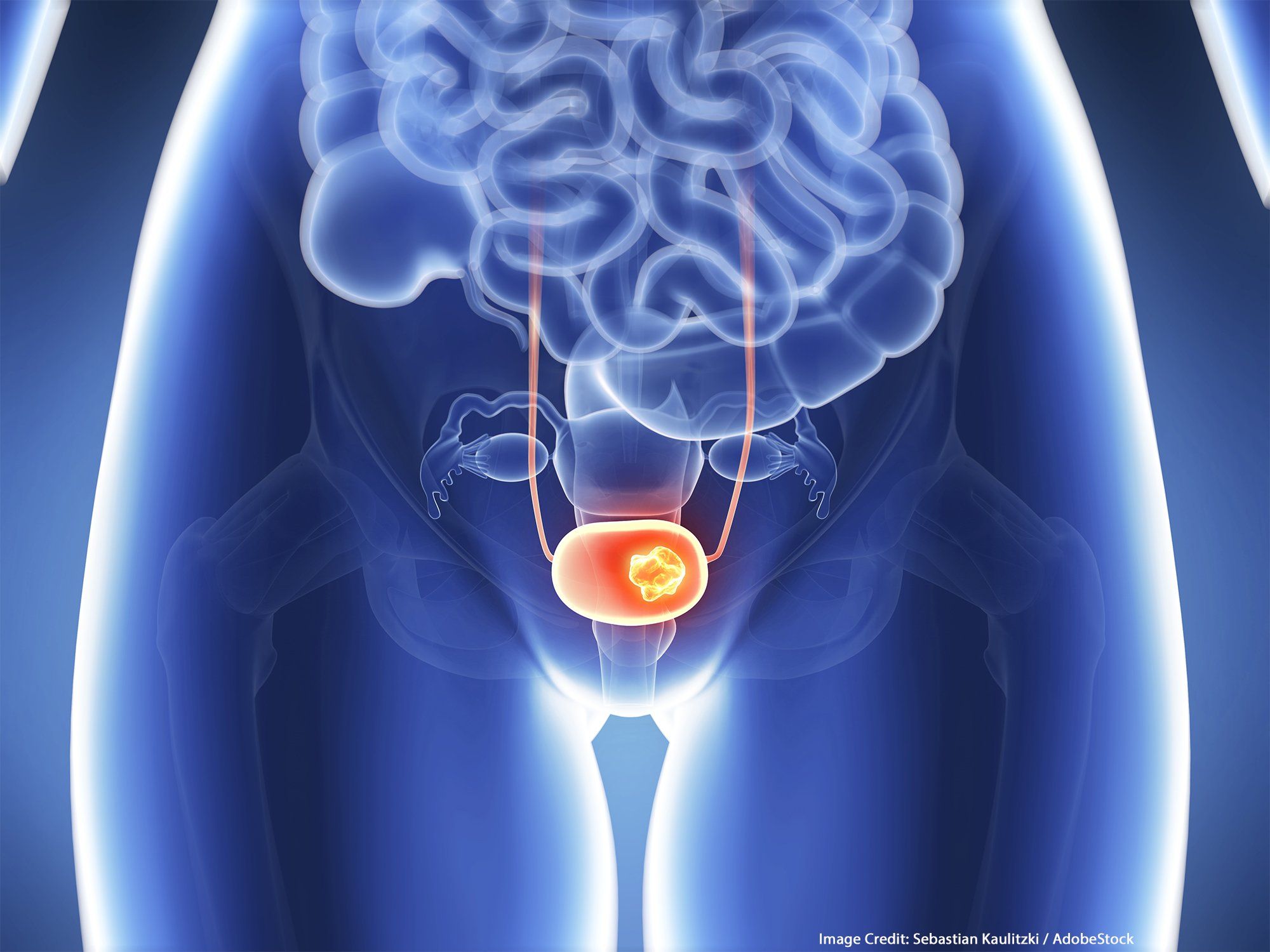Neoadjuvant Pembrolizumab Induces Survival Benefit and High Downstaging Rate in Cisplatin-Ineligible Bladder Cancer
Patients with cisplatin-ineligible muscle-invasive bladder cancer experienced a better rate of downstaging and improved survival benefit with neoadjuvant pembrolizumab prior to radical cystectomy vs immediate radical cystectomy.
Treatment with neoadjuvant pembrolizumab (Keytruda) prior to radical cystectomy resulted in improved downstaging and survival in patients with cisplatin-ineligible muscle-invasive bladder cancer (MIBC) compared with immediate radical cystectomy (IRC), according to data from a poster presented at the Society for Urologic Oncology (SUO) 23rd Annual Meeting.
In a population of 39 patients with cisplatin-ineligible MIBC who were treated with neoadjuvant pembrolizumab as part of the phase 2 PURE-01 (NCT02736266) and 313 patients who underwent IRC at Moffitt Cancer Center, overall survival (OS) was improved for the pembrolizumab group. Median OS that was not reached (NR) and 19 months, respectively (P = .01).
Patients with cisplatin-ineligible muscle-invasive bladder cancer achieved improved downstaging and survival following treatment with neoadjuvant pembrolizumab (Keytruda) prior to radical cystectomy compared with immediate radical cystectomy.

Moreover, OS was also found to be prolonged in the propensity score matched analysis, with a median that was not reached in the pembrolizumab arm vs 21 months in the IRC arm (P <.01). In fact, the IRC population experienced a worse OS in the Cox proportional hazards modeling compared with those treated with pembrolizumab. The response rate was improved in the pembrolizumab arm at 33% vs 13% in the IRC arm (pT0; P = .03).
“From this relatively small cohort, we have seen that neoadjuvant pembrolizumab given for patients with MIBC who are ineligible for chemotherapy did provide an [OS] benefit,” Roger Li, MD, a genitourinary oncologist at Moffitt Cancer Center, said in an interview with CancerNetwork®.
“There's a critical unmet need in the patients who are ineligible for chemotherapy with muscle-invasive disease, hence [why] we really need to develop efficacious treatments for these patients,” he added. “Certainly, this is an option but also along these lines, there may be some opportunities for us to use combination treatments in the future as even more synergistic mechanisms of action to control the disease [emerge].”
The study was conducted to that unmet need within the cisplatin-ineligible population, as pembrolizumab has previously demonstrated efficacy within the non-muscle invasive and metastatic bladder cancer populations.
Moreover, preliminary data from the PURE-01 trial indicated that pembrolizumab demonstrated efficacy in the neoadjuvant setting in the chemotherapy-eligible population. As such, investigators set out to compare pathologic response and survival benefit with neoadjuvant pembrolizumab vs IRC in the cisplatin-ineligible population.
OS in the study was assessed using the Kaplan-Meyer method, with comparisons conducted using log-rank functions.
The median age in the IRC cohort was 75.1 years vs 75.0 years in the pembrolizumab cohort and the majority of patients in both arms were male. No patients had an ECOG performance status of 2 or higher. Additionally, most patients in the IRC and pembrolizumab cohorts, respectively, had cT3 to 4N0M0 staging (69% vs 67%) and Pt4 or pTanyN-positive outcomes (41% vs 33%).
Reference
Rose KM, Naidu S, Bandini M, et al. Neoadjuvant pembrolizumab shows promise as effective systemic therapy prior to radical cystectomy for cisplatin-ineligible muscle-invasive bladder cancer. Poster presented at 2022 Society for Urologic Oncology (SUO) Annual Meeting; November 30-December 2, 2022; San Diego, CA. Poster 88.